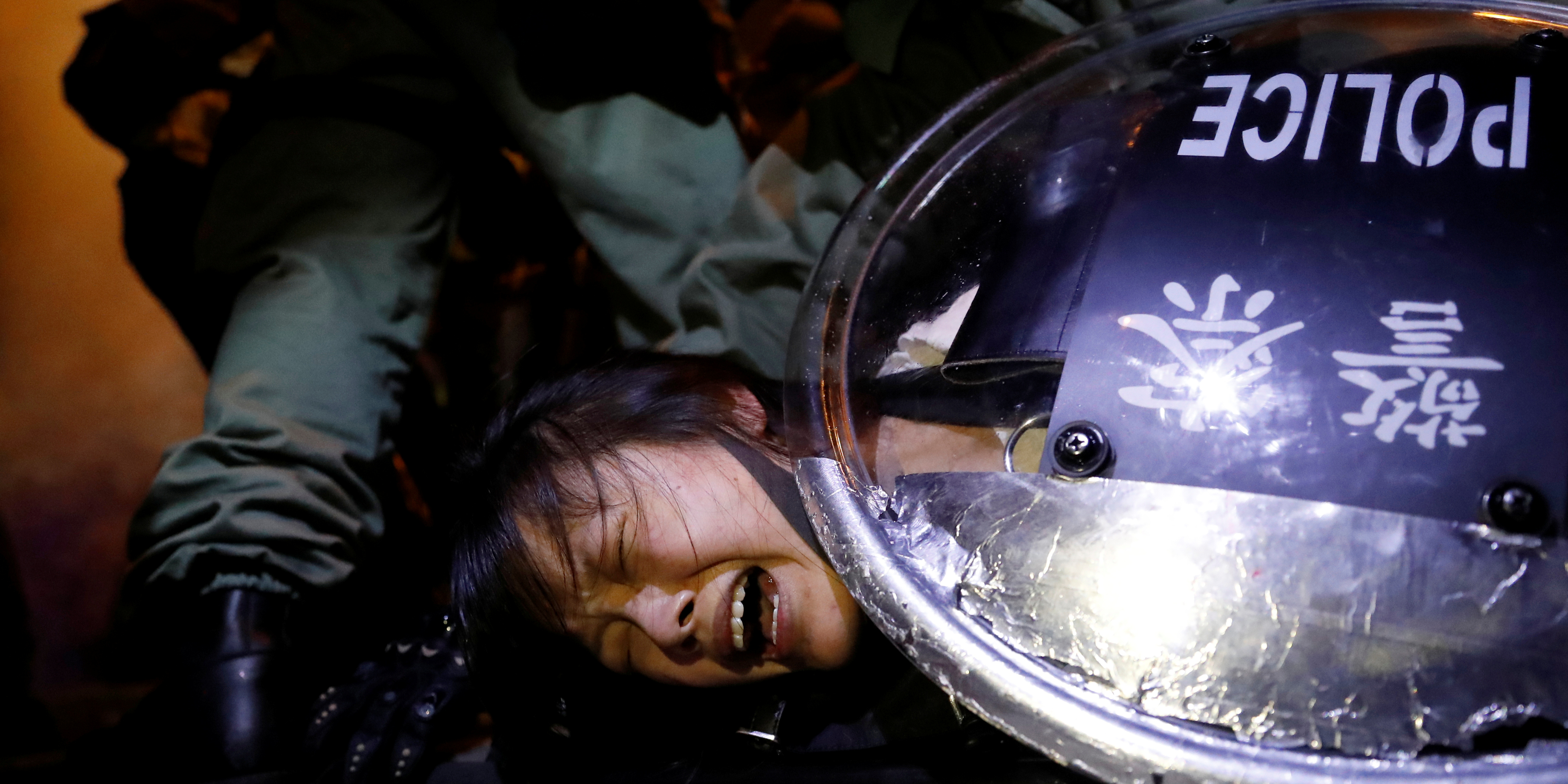- Hong Kong Chief Executive Carrie Lam announced Wednesday that she would withdraw a controversial extradition bill that would have sent Hongkongers accused of brutal crimes to mainland China for trial.
- Hongkongers have been protesting the bill since June, in huge demonstrations that have morphed into larger demands for democracy. Protesters say that Lam’s withdrawal is too little too late, and that their additional demands have not been met.
- “If it happened two months earlier, I’m sure we would have seem much less bloodshed,” Bonnie Leung, the Vice Convenor of the Civil Human Rights Front, told Insider. Protests have turned violent, with police beating up protesters, using water cannons, and pointing guns.
- Visit Business Insider’s home page for more stories.
Hong Kong protesters say that the government’s decision to withdraw its controversial extradition bill is not enough to satisfy their demands for democracy, and that protests will continue.
Carrie Lam, the embattled chief executive of Hong Kong, announced Wednesday that she would scrap the bill, which ignited months of pro-democracy protest and would require HongKongers accused of particularly violent crimes, like rape and murder, to be extradited to mainland China to face trial. Hong Kong has its own government, police force, and criminal justice system, but is ultimately overseen by the Chinese Communist Party, which appointed Lam.
Read more: Hong Kong protesters are calling for massive ATM withdrawals in an economic warning to China
While the decision to scrap the bill is a step in the right direction, protesters say, it’s not enough. ‘The withdrawal of the bill is too little, too late, because it is obviously overdue. If it happened two months earlier, I’m sure we would have seen much less bloodshed,” Bonnie Leung, the Vice Convenor of the Civil Human Rights Front, told Insider.
One demand down, four to go.
Protests that started out as an outcry against the bill have morphed into larger pro-democracy protests, which include five demands:
- Withdraw the extradition bill.
- The government should retract its characterization of protesters as "rioters."
- Launch an independent inquiry into police brutality.
- Release protesters who have been imprisoned.
- Democratic elections for Hong Kong.
Protesters have also called for Lam's resignation. While she said in audio leaked to Reuters that she would quit if she had the option, she clarified to the BBC that she hadn't tendered her resignation to Beijing but didn't deny the authenticity of the recording.
"Now, one demand has been accepted, has been responded, so we may celebrate a bit, just seconds. Of course, we have waited for it for a very, very long time," Leung said.
Demosisto, a leading pro-democracy protest group in Hong Kong, also tweeted that the withdrawal of the bill is not enough, saying that the protests have changed Hong Kong irreversibly. "Democracy, right here and right now, is the only way out."
Carrie’s response comes too late and too little, failing to address our 5 demands. Protests of the past three months have left irreversible scar on #HongKong, especially the esculating #PoliceBrutality. #Democracy, right here and right now, is the only way out.
Photo: Next Plus pic.twitter.com/uJz7nqVla1
— Demosistō 香港眾志 😷 (@demosisto) September 4, 2019
In July, Lam said the extradition bill was "dead," but did not formally withdraw it. While withdrawal is arguably the simplest of the protesters' demands for the government to meet, officials in Beijing were loath to do so and indicate that the legislation was a mistake in the first place, The New York Times reports.
The extradition bill is set to begin the withdrawal process in October, when Hong Kong's legislature will meet.

'We see police officers themselves breaking the law with no consequences at all.'
But while one demand has been met, concerns about policy brutality are top of mind for protesters in light of increasingly violent protests in the city.
"We see police officers quite blatantly violate their own rules, using totally disproportionate force [and] violence against not only protesters, but even pedestrians, passengers in the MTL train being beaten up indiscriminately," Leung said. "So we see police officers themselves breaking the law with no consequences at all."
Lam has instructed Hong Kong's Independent Police Complaints Council (IPCC) to look into violence against protesters. But protesters see the IPCC as loyal to Lam; it's headed by Lam appointee Anthony Francis Neoh, the territory's former Securities and Futures Commission chair.
Lam also said during a televised address on Wednesday that she hopes to start dialogue with Hongkongers, saying she wishes to "examine and review society's deep-seated problems and to advise the government on finding solutions," according to The Washington Post.
"Too little and too late now - Carrie Lam's response comes after 7 lives sacrificed, more than 1,200 protestors arrested, in which many are mistreated in police station," protest leader Joshua Wong tweeted Wednesday, referencing a spate of suicides attributed Beijing's inflexibility and adding that protesters are unlikely to see Lam's move as sincere.
"Whenever there are signs of sending a palm branch, they always come with a far tighter grip on exercising civil rights," he wrote, suggesting that more brutal crackdowns are to come.

